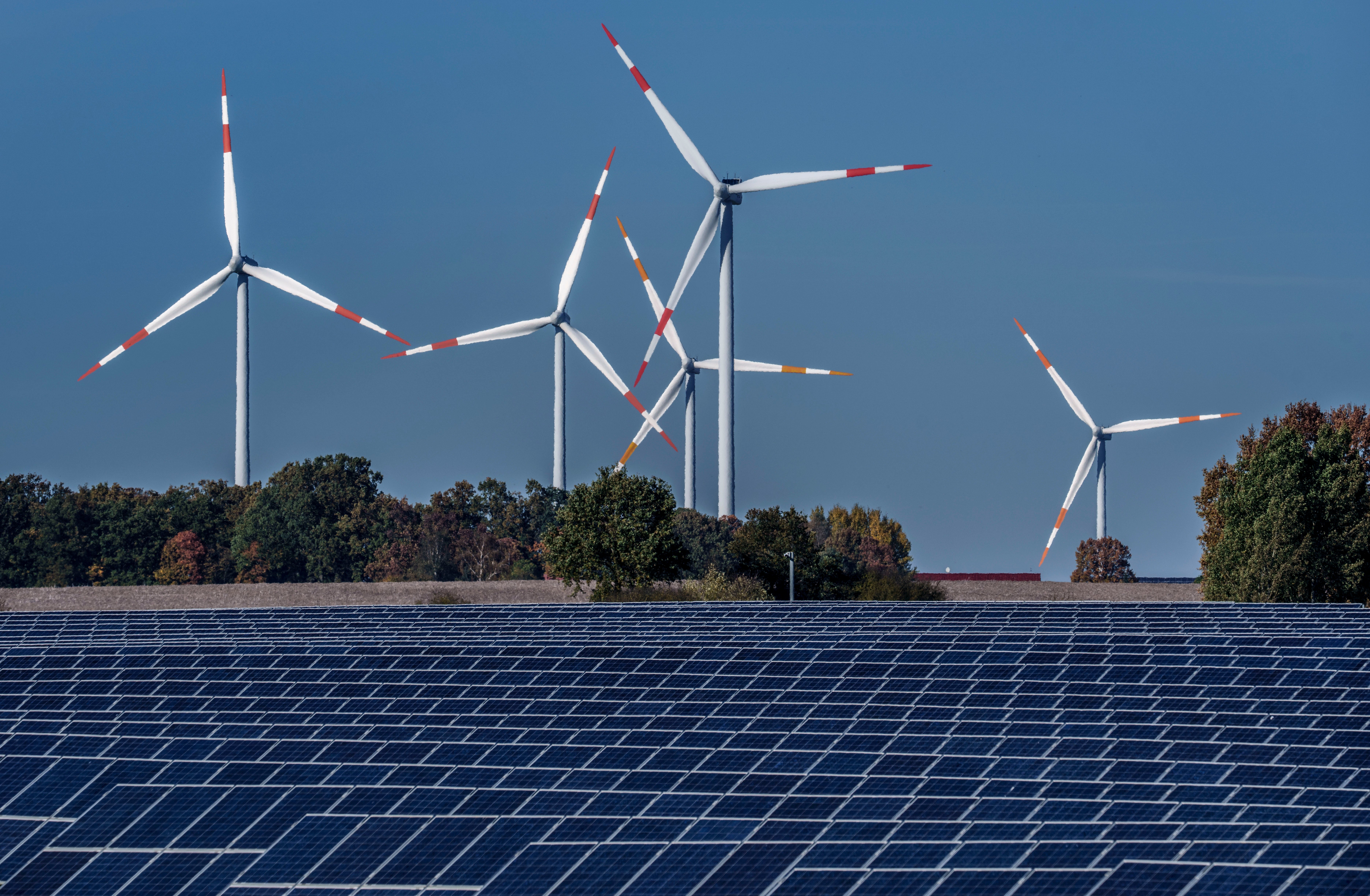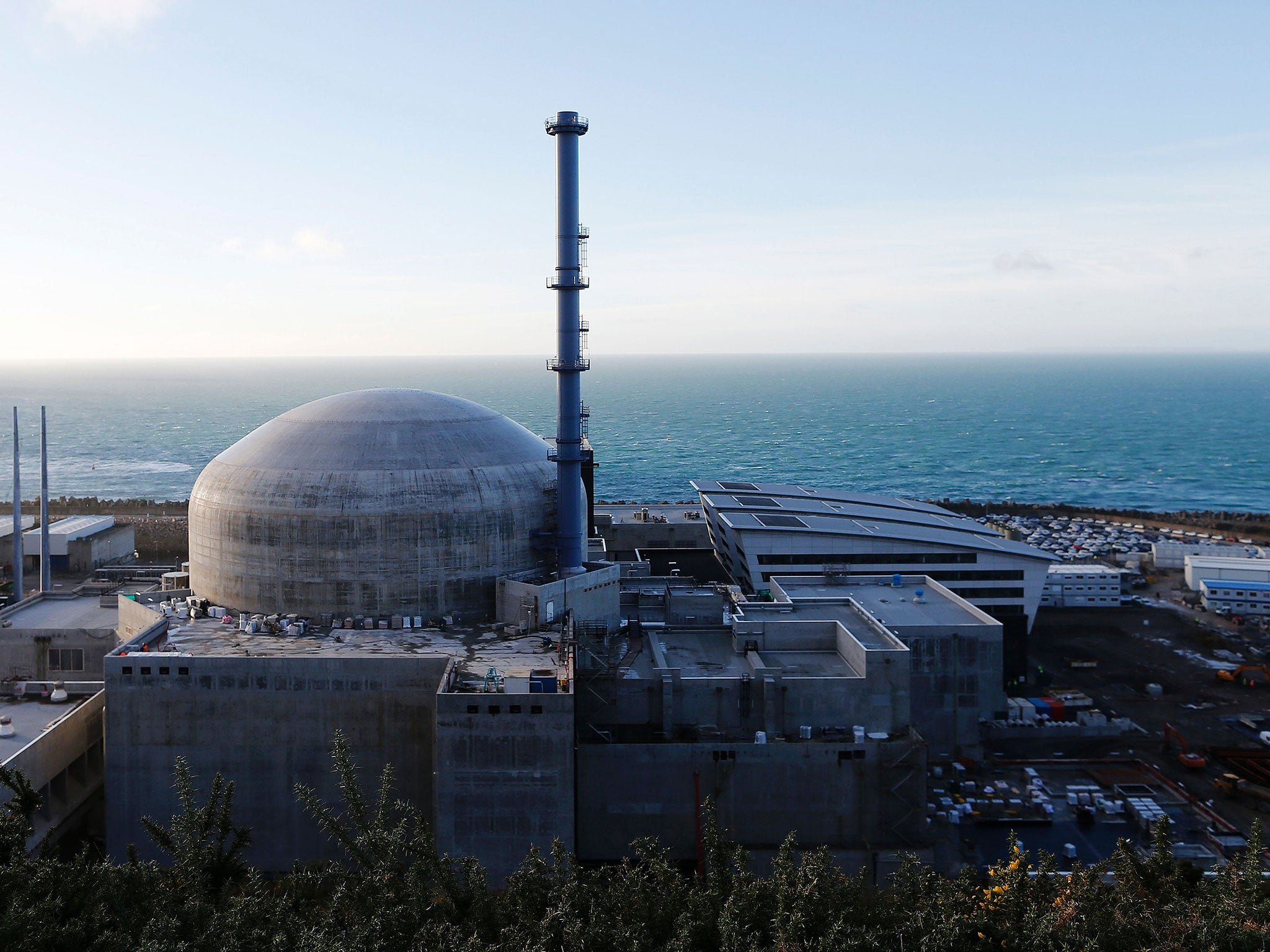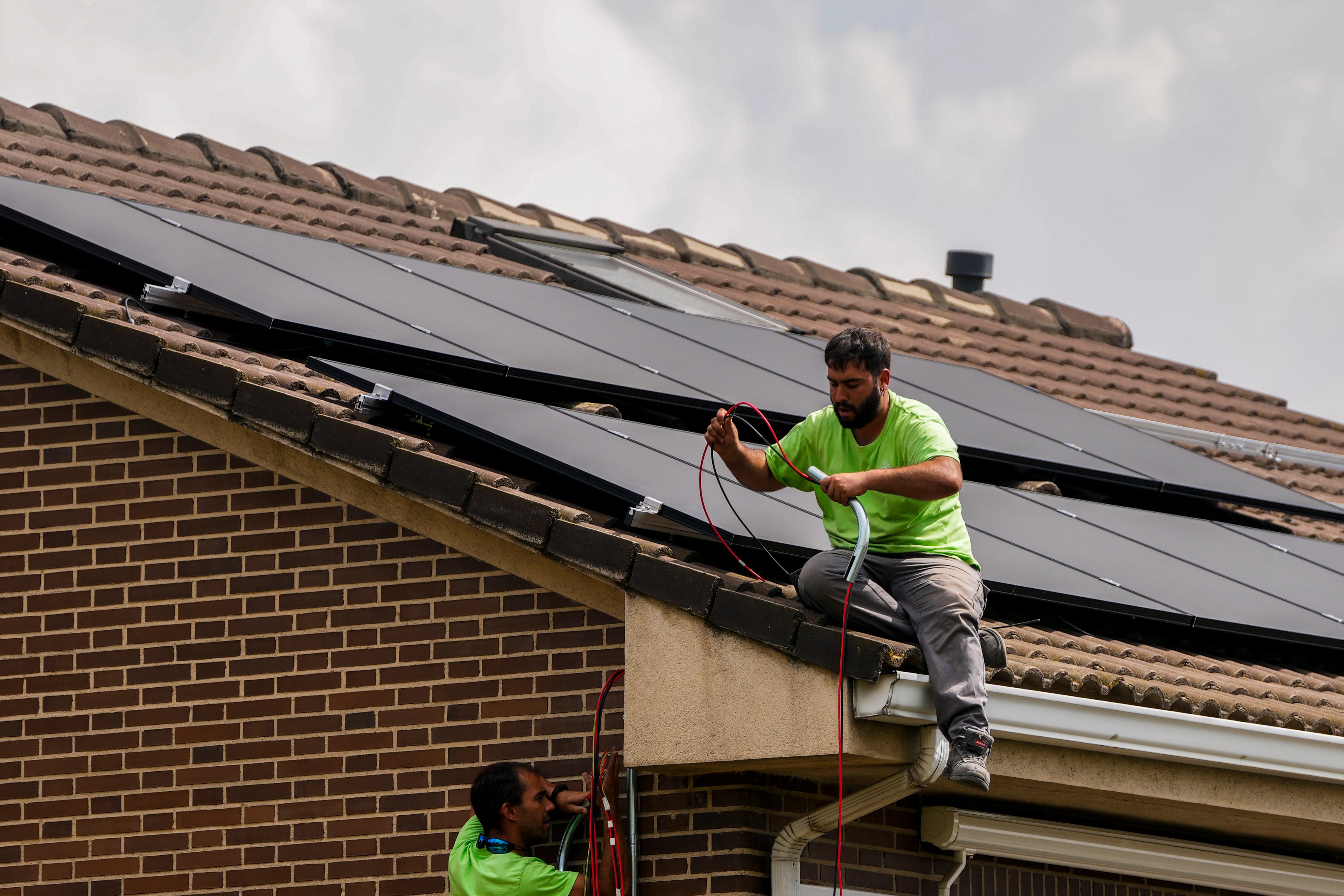Europe’s renewable energy boom is driving down electricity prices – but it’s not all good news
Continent has seen record number of hours this year where electricity prices turned negative. Stuti Mishra reports


Europe has seen a record number of hours this year where electricity prices dropped below zero – a sign of progress in renewable energy generation but also a growing challenge that has lessons for other countries.
A surge in clean energy production, particularly from wind and solar, has created moments where the grid is overwhelmed with more electricity than it can handle, pushing prices into negative territory.
In the first eight months of this year, Europe saw a total of 7,841 hours of negative electricity prices in various countries, according to consultancy ICIS, the longest time so far for negative electricity prices.
Negative prices occur when excess electricity is generated. This means energy suppliers are paying to offload power they can’t store or use.
While this might sound like a good deal for consumers, the reality is more complex. Most households do not directly benefit from negative prices, as they pay fixed rates for electricity. Instead, it highlights the growing pains of a system trying to transition to renewable energy without the infrastructure in place to fully support it.
“Electricity generation and consumption must match at every point in time,” Dr Femke Nijsse, a lecturer in innovation, energy, and climate at the University of Exeter, told The Independent.
“With higher shares of variable renewables, it’s more challenging to get this match.”
On days when a strong wind or a bright sun produces excess renewable energy, prices can fall rapidly, especially if demand is low.
However, the grid isn’t always prepared to handle this surplus, and storage options remain limited.
“Some dispatchable generation like nuclear cannot turn on and off rapidly,” Dr Nijsse said, meaning they may have to pay to keep generating electricity even when it’s not needed.

While negative prices reflect the success of Europe’s clean energy push, they are also an example of a complex economic challenge in the transition process. Renewable energy companies rely on profits from selling power, and persistent negative prices could reduce profitability.
"Over the long term, low or negative prices may reduce the profitability of renewables," Dr Iain Soutar, senior lecturer in energy policy at the university, said.
"We need to ensure that electricity markets support investment in renewables rather than fossil fuels," Dr Soutar said.
Despite these challenges, negative prices can push the energy market towards better solutions, experts say. The situation calls for more flexible technologies such as batteries that can store excess energy and release it when demand rises.
“Negative prices are not only a problem, they are also an opportunity," said Dr Nijsse.
Storage solutions, however, have lagged behind the rapid growth of renewable energy. Europe’s grid wasn’t designed to handle such large amounts of variable energy, and this mismatch has made it harder to balance the system.
"Storage solutions, apart from lithium-ion and pumped hydro, are still relatively new, and countries haven’t always put in place successful support mechanisms,” Dr Nijsse said.
Negative electricity prices have been seen in the United States as well. In the UK, the first half of 2024 saw 3.5 times more instances of negative prices compared to last year, with negative prices now averaging close to one hour per day.
Moving forward, the focus must be on building a more flexible grid – one that can manage the ups and downs of renewable energy production without forcing prices into negative territory.
This includes building more interconnectors between countries, improving energy storage capacity, and encouraging innovation in demand-side management, such as shifting electricity use to times when supply is high.

Dr Soutar noted that "investment in storage and flexibility will help" balance the grid. Solutions like electric vehicle batteries, heat pumps and smart appliances could help consumers use electricity when it’s cheapest, potentially absorbing some of the surplus energy that currently pushes prices into the negative.
More countries are moving away from the volatile fossil fuel market towards a green electricity infrastructure. The UK will close down its last coal power plant in October as part of its commitment to net-zero emissions.
Renewables also form a rapidly increasing share of electricity supply in countries like India and China.
Experts say government policies need to focus on expanding storage infrastructure to avoid negative pricing.
“The market underinvests in innovation," Dr Nijsse said, calling for policies to replicate the success of wind and solar in making storage technologies more affordable.
This is not something that can be rapidly fixed, though. As renewable energy production continues to rise, experts agree that negative prices are likely to stick around for a while. But in the long run, the right investments in grid infrastructure and innovation could turn these moments from a challenge into an opportunity to optimise the energy system.
“Low or negative prices are a feature of low-carbon electricity markets,” said Dr Soutar, adding that investment in storage and grid flexibility will be key for the long-term viability of renewables.
Read more on solar panels






Join our commenting forum
Join thought-provoking conversations, follow other Independent readers and see their replies
Comments